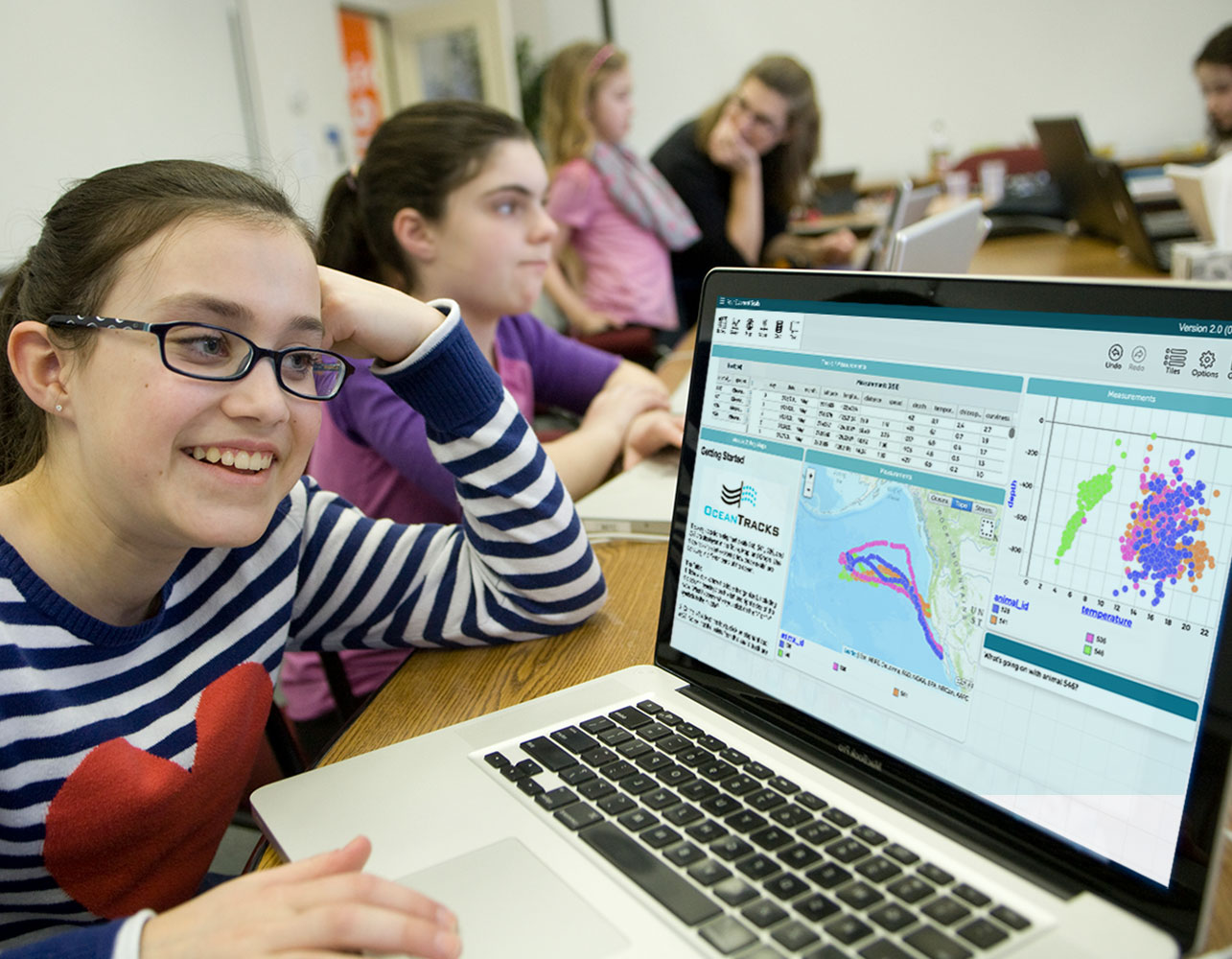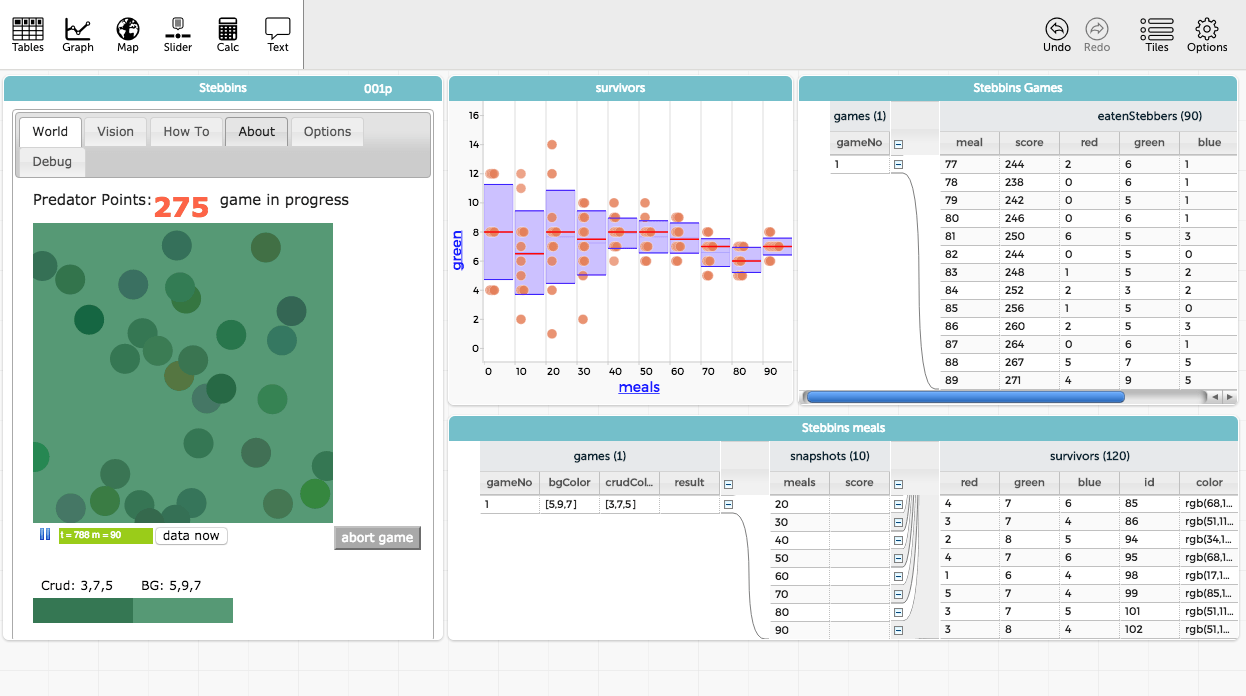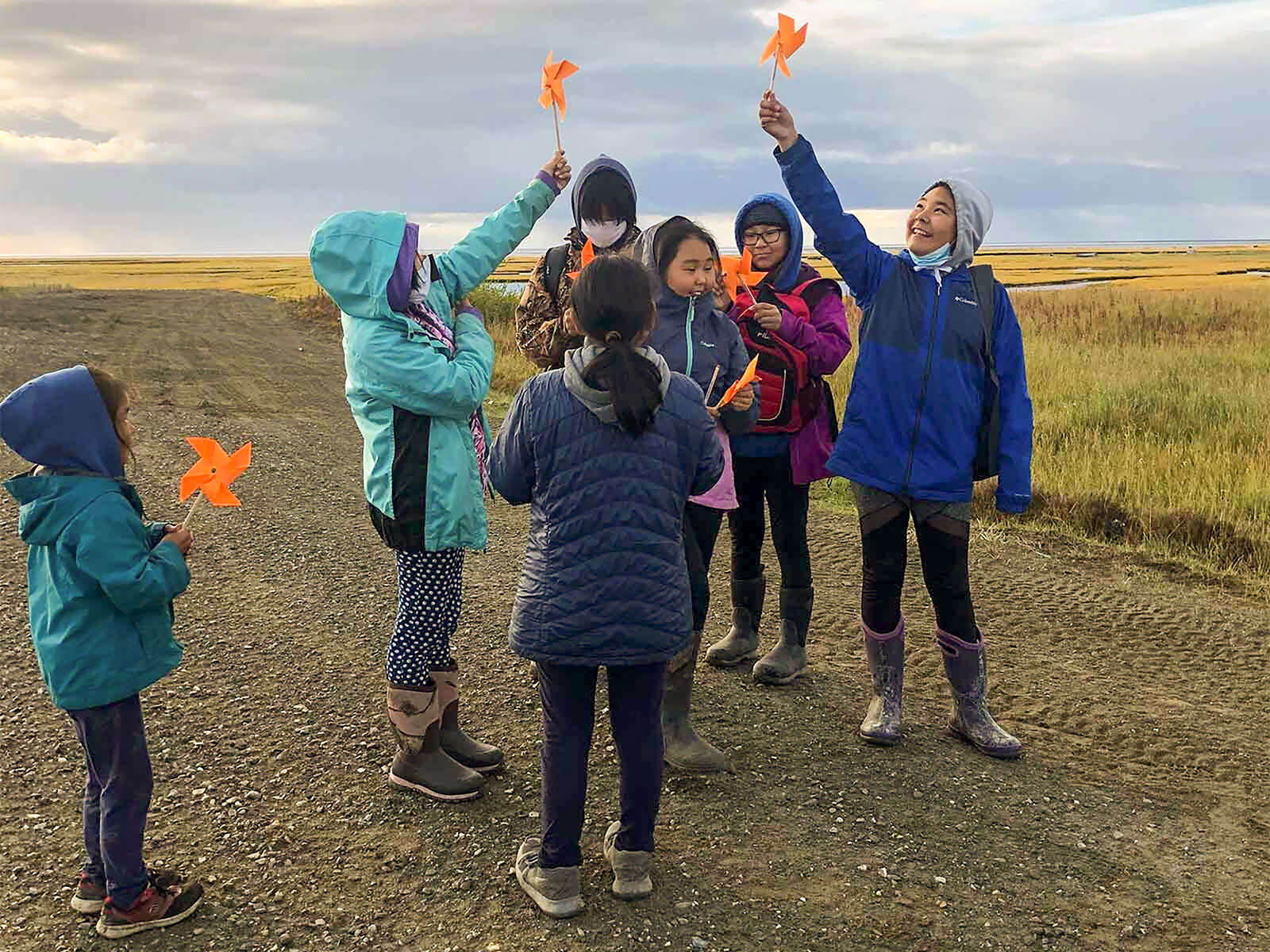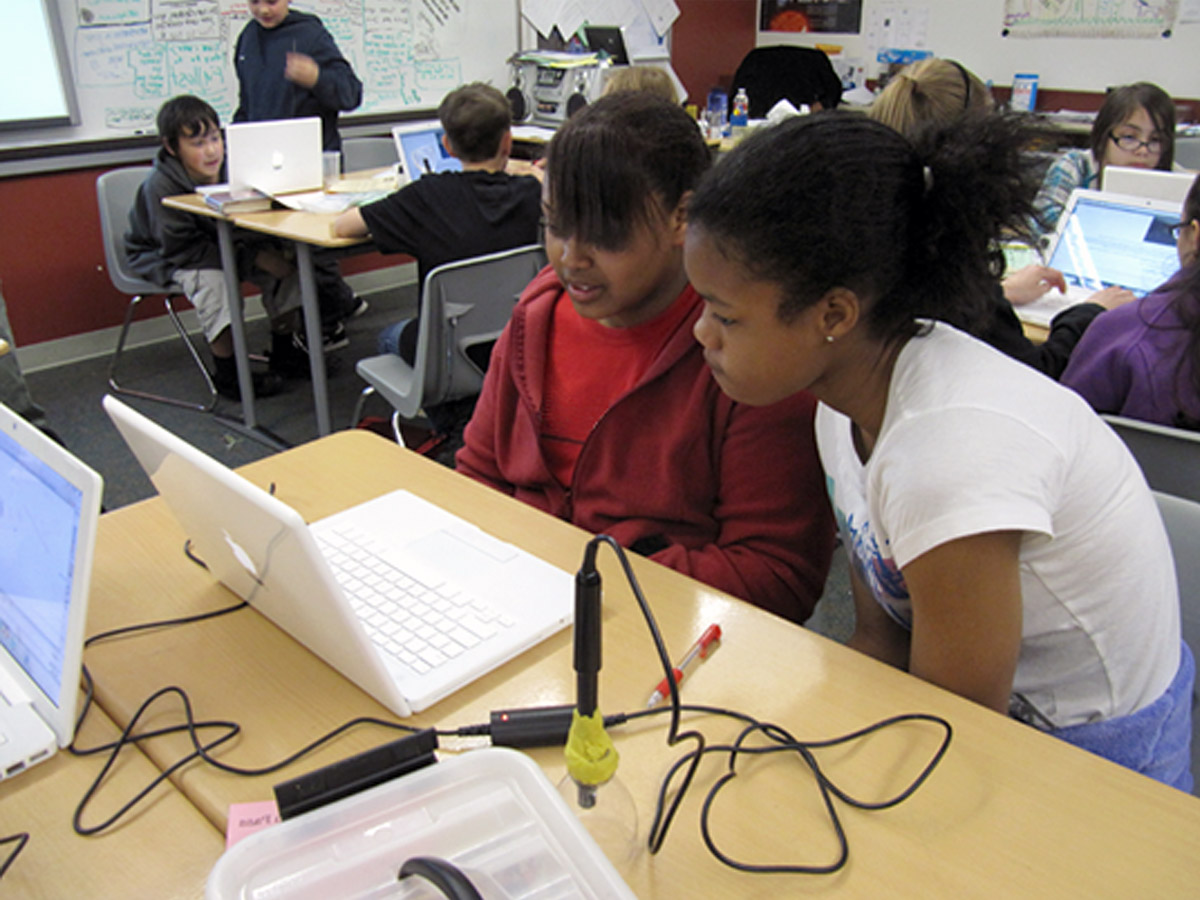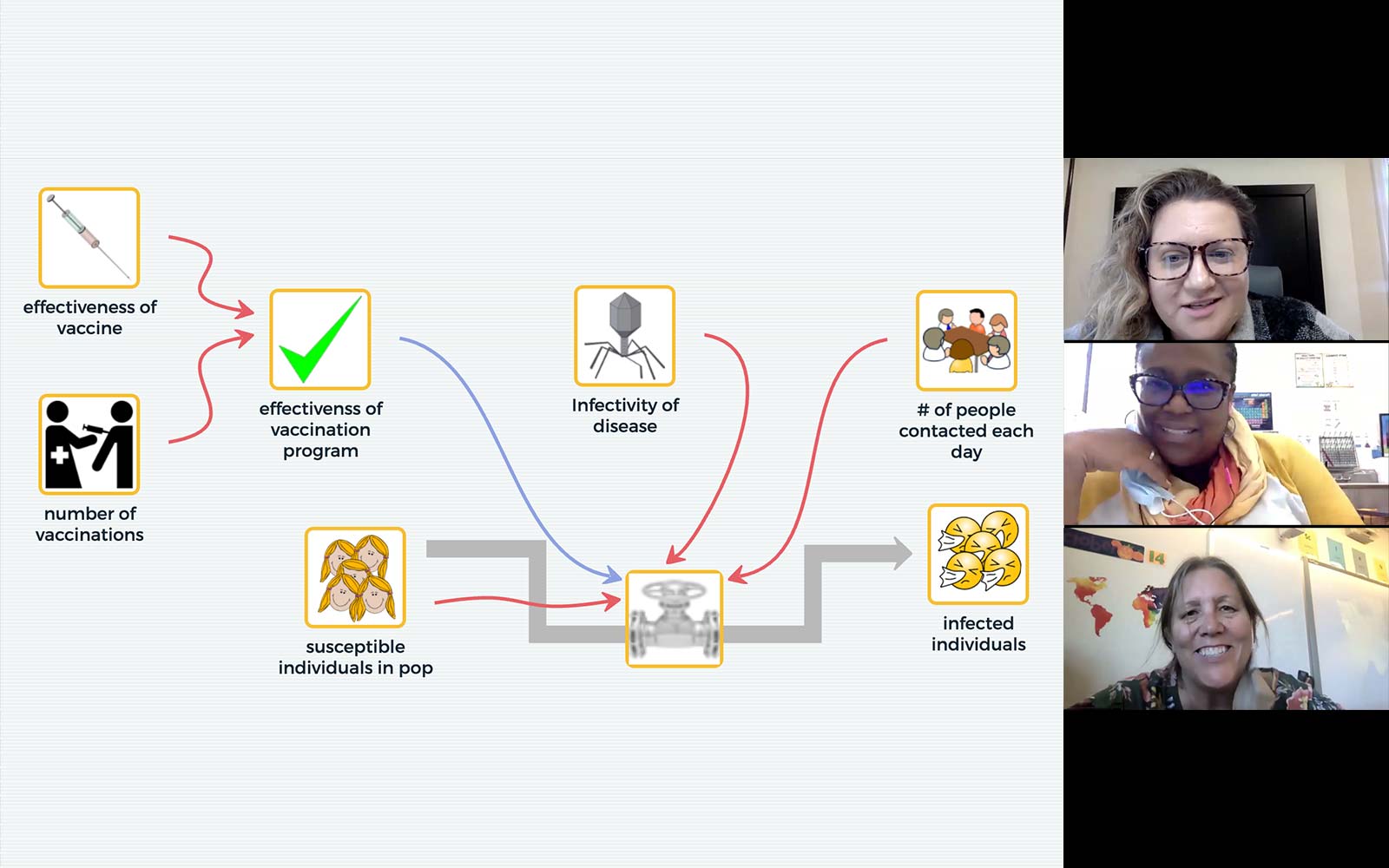CODAP
Importance
Data are everywhere. Just as language and numeric literacy involve understanding the world through words and mathematical constructs, data literacy involves understanding the world through data exploration. Today’s middle and high school students need to work with data in order to advance their skills and prepare for the burgeoning careers and inquiry-based practices of data scientists.
CODAP provides an easy-to-use web-based data analysis platform, geared toward middle and high school students, and aimed at teachers and curriculum developers. CODAP can be incorporated across the curriculum to help students summarize, visualize and interpret data, advancing their skills to use data as evidence to support a claim.
Through research on learning, collaborative software design, web application development and user testing, we’re developing a Common Online Data Analysis Platform (CODAP) that will serve subsequent curriculum development projects as a basis for the technology with which students engage with data.
CODAP is open source software, free to use, adapt and extend.To increase the likelihood that CODAP software will meet the needs of a wide range of curriculum projects it is being designed and tested in collaboration with four existing NSF-funded projects: Building Models, Data Science Games, InquirySpace, Ocean Tracks, Terra Populus, Enhancing Statistics Teacher Education with EModules (ESTEEM), and Zoom In! Learning Science with Data. These projects form the nucleus of a community of developers that will grow with time and lead to widespread use of CODAP’s data exploration and visualization tools in middle and high school classrooms across a variety of subject areas.
Teachers: Learn more about using CODAP »
Research
We’re researching the ways students perceive and learn to work with empirical data that’s structured hierarchically. Our goals are to add to the field of data science education and to improve the design of data analysis learning environments.
Videos
View all these videos and more on the Concord Consortium YouTube Channel.
Publications
- Finzer, B., & Wilkerson, M. (2020). Writing data stories. @Concord, 24(1), 10–11.
- Finzer, B., & Kochevar, R. (2019). Monday's lesson: Zoom in! teaching science with data. @Concord, 23(2), 7.
- Finzer, W., Busey, A., & Kochevar, R. (2018). Data-driven inquiry in the pbl classroom: Linking maps, graphs, and tables in biology. The Science Teacher.
- Konold, C., Finzer, W., & Kreetong, K. (2017). Modeling as a core component of structuring data. Statistics Education Research Journal.
- Finzer, W., & Damelin, D. (2016). Design perspective on the common online data analysis platform (codap). Paper presented at American Educational Research Association (AERA) conference, Washington, D.C..
- Finzer, W., & Damelin, D. (2015). Building the CODAP community. @Concord, 18(1), 16.
- Finzer, W., & Tinker, R. (2015). Under the hood: Embedding a simulation in CODAP. @Concord, 19(1), 14.
- Finzer, W. (2014). Hierarchical data visualization as a tool for developing student understanding of variation of data generated in simulations. in proceedings of the ninth international conference on teaching statistics (vol. 6). voorburg: International statistics institute.
Software
CODAP is easy to use and runs in your web browser. Open an example document or create your own by dragging in a CSV or TXT file and start bringing data to life!
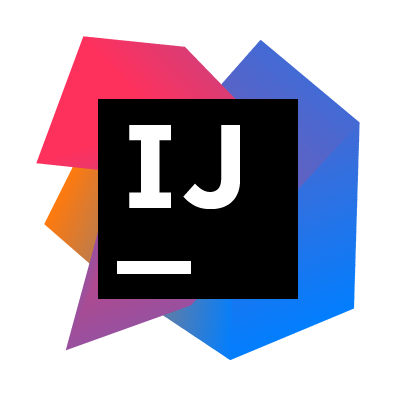 The CODAP project uses IntelliJ IDEA as part of its software development process.
The CODAP project uses IntelliJ IDEA as part of its software development process.
